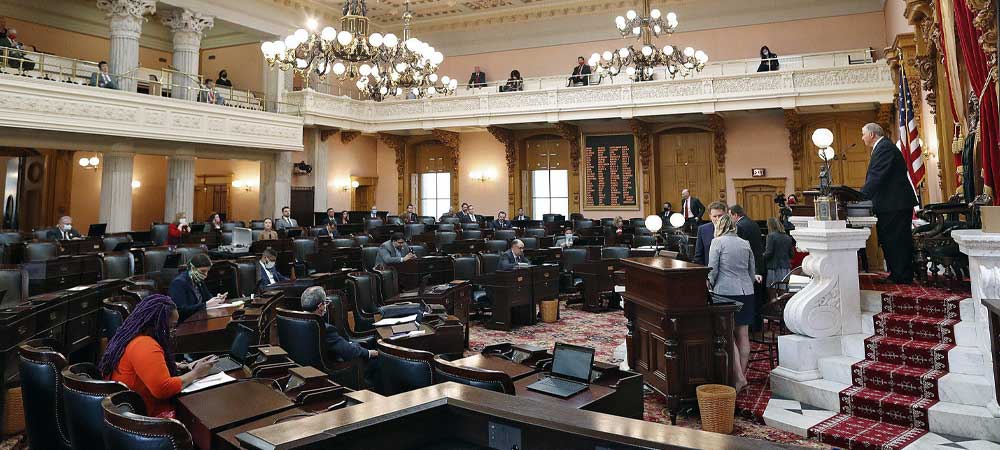COLUMBUS, OH – While some Ohio residents have gotten used to traveling outside the state to place their sports bets, they may soon not have to. Ohio Senator John Eklund expects to fill his placeholder bill later this month and believes it has favorable odds to pass.
A big reason why he believes this is because of the bipartisan support the bill has seen. Eklund is a Republican but he presented OH S 316 with Senator Sean O’Brien, who is a Democrat. There is also support in the House with Representative Dan Greenspan sponsoring a companion bill.
Full details of what will be included in the bill have yet to be announced, but many are optimistic about the potential for mobile wagering.
“If that’s what the consumer wants and it can be done in a safe and secure fashion that maintains the integrity of the contest, it would be hard to turn one’s back on that,” Eklund said.
He will have to address that concern in the final draft of his bill. He will also have to address integrity fees that major sports leagues have asked for, which establishments will be able to accept sports bets, and which entity in the state will regulate the activity.
How Other States Can Influence Ohio Lawmakers
Ever since the federal law PASPA was repealed in May of last year, several states have legalized sports gambling. Two of those states are Pennsylvania and West Virginia, both of which house sportsbooks in casinos and racetracks near the Eastern border of Ohio.
West Virginia also recently unveiled a sports betting app that will let anyone within the borders of the state place sports wagers. Pennsylvania sportsbooks, such as the one in Parx Casino, are also looking to release a similar platform in the near future.
Both states have already begun to see profits from their sports betting operations. Ohio lawmakers may see this new bill as a chance to keep that revenue in-state.
How Much Revenue Could Come From Sports Betting?
Those in the sports betting community know that this type of gambling is not nearly as profitable as other casino games. This week New Jersey reported a record high $385 million wagered on sports in the month of January alone. Of that amount, sportsbooks only kept $18.8 million.
Eklund understands the financial limitations that could come with this gaming expansion. “I don’t view this as the tool to solve any state’s, much less Ohio’s, fiscal concerns from now until forever,” he said.
But, this has not stopped him from finishing his bill. While sports betting in Ohio may not drive revenue on its own, the added amenity will act as an additional reason for tourists to come to the Buckeye State and for residents to visit their local casinos.

